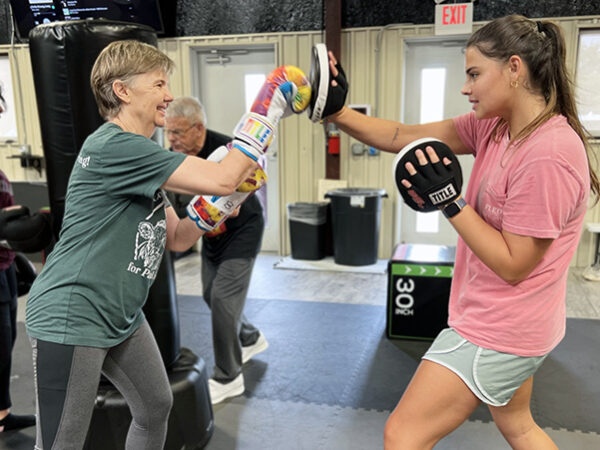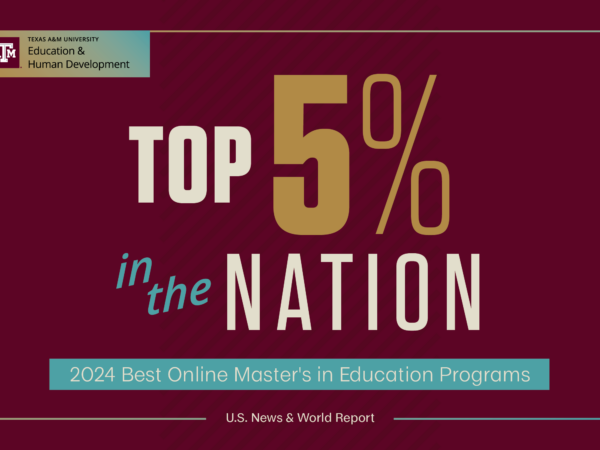What new research finds of sport industry careers and realities
The sport industry is often perceived as exciting and full of action, however, it may not be all it seems.
Dr. Marlene Dixon knows the reality first-hand from her experiences as a former basketball and volleyball coach.
“Because the sport industry is so fast paced, it’s attractive and a cool opportunity to work for something that can seem to be really glamorous and a lot of fun. But, it’s also taxing on people,” Dixon says.
For Dixon, the choice to continue in the industry came down to deciding if she wanted to have more work-life balance or be dedicated to a sport career – she chose work-life balance.
Dixon is a sport management scholar in the Department of Health and Kinesiology at Texas A&M University and studies the sport industry and its impact on people.
Environment crucial for reducing early-career burnout
Recent research by a team of scholars including Dixon surveyed over 4,000 National Collegiate Athletic Association full-time staff and had certain key findings.
Five main archetypes – a type of person or demographic – emerged from the survey: early career support staff, mid-career no flexibility, mid-career married parents, mid-career with flexibility and no children and late-career seniors.
The study finds most early-career support staff were experiencing higher levels of work-family conflict and burnout and less work engagement than the other four archetypes.
“These early career employees are constantly embroiled in this tension of ‘I don’t know which way I want to go, this is so difficult, I don’t know if I can keep doing this’,” Dixon says.

Early-career support staff had higher burnout than four other archetypes identified in research of NCAA support staff by Dr. Marlene Dixon.
Dixon says for those who make it past this initial tension is where the remaining archetypes emerge:
- Mid-career, no flexibility – those that feel stuck and felt they had to stay committed to the sport industry,
- Mid-career, flexibility, no children – those who are “married to their job” and are satisfied in their jobs.
- Mid-career married parents- those that are married and love both their family and their career.
But regardless of what stage workers in the sport industry are at, Dixon found that there seems to be one thing that affects how they perceive their job the most – their environment. Her research found when the work environment is supportive, it drastically can change how employees feel about their work.
“You’re going to continue to work there and even though you acknowledge the hours and the grind, it’s not going to feel like that,” Dixon says.
Using human capital theory to fix issues
Human capital theory further supported the study’s findings about the effects the environment has on sport industry workers. Human capital is knowledge and experience a worker gains through education and training as a form of capital which yields returns for not only an organization, but society as well.
Human capital theory in research helps to identify where there are needs and the strategic ways to meet them. For Dixon, human capital theory is about how organizations manage people and putting them in supportive environments.
With burnout in the early stages of sport industry careers being all too common one might ask “why hasn’t anyone done anything about it?” and the answer from Dixon is quite simple – they are expendable.
“In the sense that there’s so many people who want those entry level jobs that there’s really no motivation to behave in the same ways that they treat their executive level at the entry level,” Dixon says.
She says this is because moving up in the sport industry hierarchy can be perceived as a “badge of honor.” Dixon adds less specialized skill sets in entry-level employees do not provide enough leverage for organizations to treat them well.
Dixon says a shift to mandatory dead periods would be one way to create a reduction in workaholism and burnout caused by the competitive culture within NCAA affiliated institutions.
“Essentially, one reason people work themselves to death is because they can’t afford to take time off because of the fear that someone else is out-working them.”
She adds the mandatory dead periods would allow for staff members to feel comfortable with taking time off because everyone else would also be taking time off.
Dixon says the idea of a sport industry career can be fun and interesting but a reflection should first be made before entering – “am I interested in a career in the business of sport or am I primarily a fan?”
About the Writer
Andrew Newman is a writing assistant in the Marketing and Communications office at the College of Education and Human Development. Andrew is a studying Communications and will graduate in Fall 2022.
Articles by AndrewFor media inquiries, contact Justin Elizalde.













